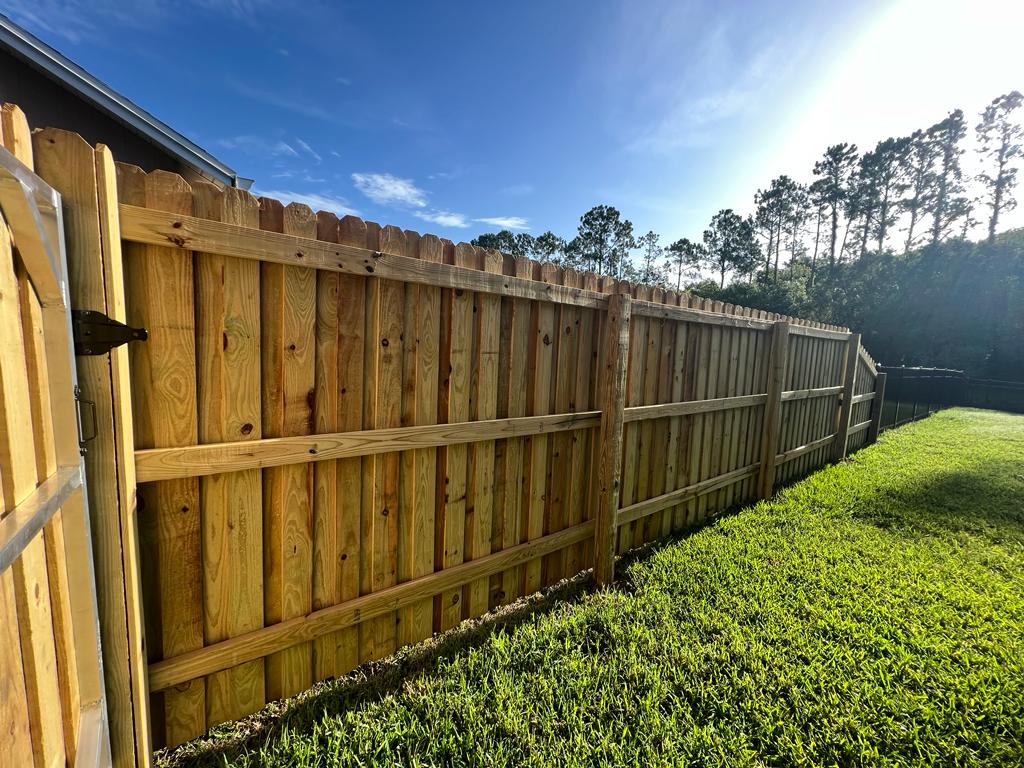When it comes to selecting the right fencing materials for your property, the choices can be overwhelming. Vilo Fence is here to guide you through the top options with a comprehensive analysis of each one of them.
Whether you’re looking for style, durability, or cost-effectiveness, understanding the materials available can help you make an informed decision that suits your home’s needs and aesthetics.
Understanding Fencing Material Options
The right fencing material can enhance your home’s curb appeal, provide privacy, and ensure the safety of your outdoor space. From traditional wood to modern fence aluminium and fence vinyl, each material comes with its unique set of characteristics. Let’s delve into the details and discover the best fencing materials for your haven.
Wood Fencing: Natural and Classic
Wood is a timeless choice known for its natural beauty and versatility.
Wood Fencing Pros
- Aesthetic appeal: Offers a classic look that complements any property.
- Customizable: Can be cut to any height and painted in any color.
- Repairability: Wood fence repairs are simple, with planks and posts easily replaceable for lasting use.
- Biodegradable: Wood is recyclable and biodegradable, offering an environmentally friendly option when it comes to fencing materials.
Wood Fencing Cons
- Maintenance: Requires regular staining or sealing to prevent decay.
- Susceptibility to elements: Can warp or rot over time, especially in damp climates.
- Pest Attraction: Wood attracts termites and pests, requiring treatments to prevent infestation.
Vinyl Fencing: Low Maintenance and Durable
Fence vinyl stands out for its longevity and minimal upkeep.
Vinyl Fencing Pros
- Maintenance: Needs only occasional cleaning, no need for painting or staining.
- Durability: Resistant to rot, insects, and harsh weather conditions.
- Color Retention: Vinyl fencing retains its color, maintaining a new look over time.
- Non-Toxic: Fence vinyl is safe for families and pets as it needs no toxic treatments.
Vinyl Fencing Cons
- Cost: Generally more expensive than wood upfront.
- Appearance: Some may find it less warm or natural compared to wood or other fencing materials.
- Brittleness in Cold Weather: May become brittle and damage-prone in cold weather.
- Difficult Disposal: Vinyl fencing is not biodegradable and presents recycling challenges.
Aluminium Fencing: Lightweight and Rust-Resistant
Fence aluminium offers a sleek and modern aesthetic while being surprisingly lightweight.
Aluminium Fencing Pros
- Durability: Resistant to corrosion and rust, ideal for all climates.
- Style: Provides a contemporary look with various design options.
- Ease of Installation: Fence aluminium is lightweight, making installation easier and often cheaper.
- Recyclability: Aluminium fencing is fully recyclable, making it an eco-friendly choice between fencing materials.
Aluminium Fencing Cons
- Strength: Less robust than steel, making it less ideal for high-security areas.
- Cost: Can be more costly than other metal options, like chain-link.
- Lower Privacy: Aluminium fences often provide less privacy than wood or vinyl options.
- Dent Susceptibility: Aluminium is less resistant to dents and heavy impacts compared to steel.
Steel Fencing: Strong and Secure
Steel’s strength makes it a prime choice for security-conscious homeowners.
Steel Fencing Pros
- Security: Offers robust protection due to its inherent strength.
- Longevity: With proper coating, it can last for decades without issues.
- Customization: Steel’s versatility allows for intricate designs that enhance both its look and security.
- Fire Resistance: Unlike wood or vinyl, steel is non-combustible, making it a safer option in fire-prone areas.
Steel Fencing Cons
- Maintenance: May require rust treatment and repainting over time.
- Weight: Heavier, requiring more support and potentially more installation costs.
- Conductivity: Steel’s conductivity can lead to heat retention and electric hazards if not grounded.
- Corrosion if Coating is Compromised: Damaged coating on steel can lead to rust and diminished appearance.
Composite Fencing: Eco-Friendly and Versatile
Composite fencing materials are a blend of wood fibers and plastic, offering an eco-conscious fencing solution.
Composite Fencing Pros
- Environmental Impact: Made from recycled materials, reducing waste.
- Aesthetics: Mimics the look of wood without the maintenance.
- Color Variety: Available in various colors and finishes, composite fencing doesn’t require painting.
- Mold and Mildew Resistance: Composite fencing resists mold and mildew better than natural wood.
Composite Fencing Cons
- Temperature Sensitivity: May warp or fade in extreme temperatures.
- Cost: Generally more expensive than traditional wood fencing.
- Expansion and Contraction: Composite fencing may shift with temperature fluctuations, affecting stability.
- Potential for Scratches: Composite fencing scratches are tough to fix due to its uniform color.
In Conclusion
In summary, choosing suitable fencing material is crucial in defining the aesthetic and functionality of your home’s outdoor space. Each option offers unique benefits, from the timeless beauty of wood to the sleek durability of fence aluminum and the low-maintenance appeal of vinyl.
Vilo Fence is here to assist you in selecting the perfect fencing solution that aligns with your style and needs. Reach out to us today to transform your outdoor area with a blend of quality, elegance, and durability.

